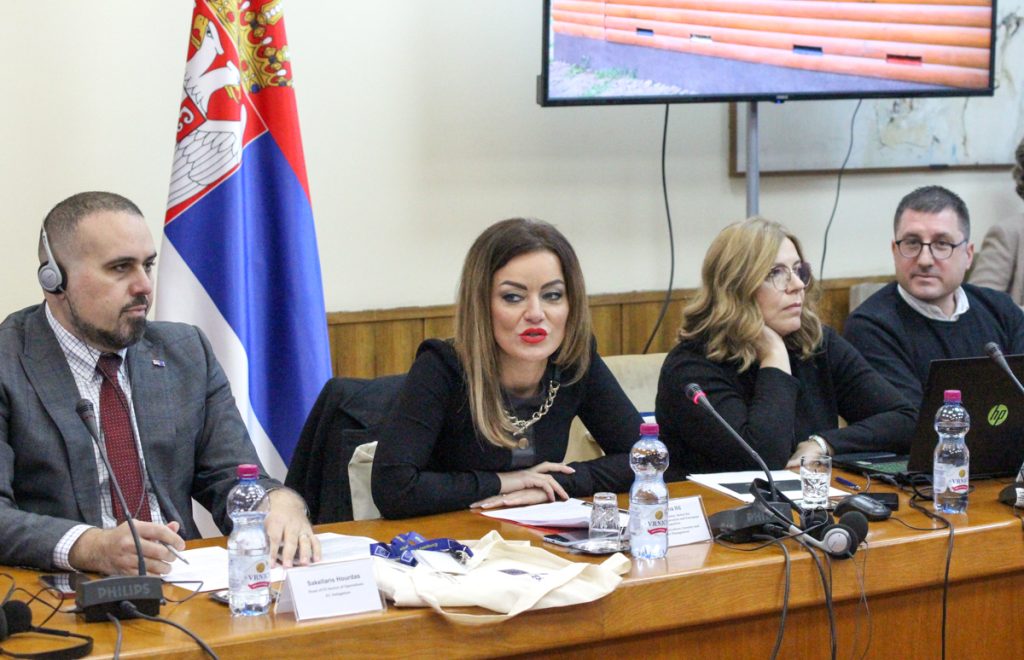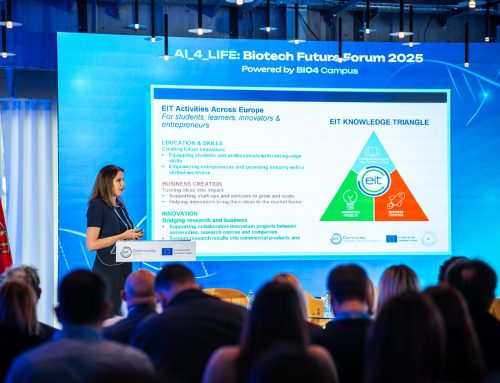In the coming period, Serbia will need further support from the European Union in fulfilling all conditions and obligations in the process of negotiations in the field of agriculture, said Assistant Minister of Agriculture, Forestry and Water Management Vedrana Ilić at the conference dedicated to the negotiation Chapter 11, which refers to agriculture and rural development. Ilić thanked the EU Delegation in Belgrade and the relevant directorates of the European Commission for the help and support they provide to the Republic of Serbia and the Ministry in the process of European integration. At the national conference “Achieved results and future challenges within the framework of the negotiation Chapter 11”, Ilić pointed out that this chapter is one of the most strategic and demanding within the legal acquis of the EU, considering current global trends.
“It is strategic because food security is gaining more and more importance, and this is not easy to achieve if you take into account new approaches in creating policies that give priority to ecological standards and the fight against climate change,” Ilić explained. The Assistant Minister said that Chapter 11 is demanding because it mandates a change in the logic in the creation of agricultural policy, but also the establishment of appropriate administrative capacities that are able to effectively implement the EU’s Common Agricultural Policy, for which the new legislative framework will start to apply from January 1st, 2023.
“There are numerous challenges on the path of the Republic of Serbia towards EU membership, and the Government of Serbia, as well as the competent institutions, are working to meet the necessary preconditions for overcoming those challenges,” emphasized Ilić. She stated that the process of negotiations leading to full membership entails, first of all, institutional and organizational adaptation for the implementation of European policies and regulations, but also timely and adequate information and preparation of the entire society and business entities, in order to be equal and competitive members of a large European family.
Sakelaris Hourdas, Head of Operations III in the Delegation of the European Union to the Republic of Serbia, indicated that thanks to the help of experts who worked on the project “Capacity building for the alignment with the acquis in the field of agriculture, rural development, food safety, veterinary and phytosanitary policy”, Serbia will be in a position to opt for the best options in order to gradually harmonize with the European agricultural policy, which will be the subject of negotiations with the EU within the negotiation Chapter 11.
“At the end of this journey, the entire sector, including agricultural producers, will be able to use its numerous advantages. Of course, it is not an easy task, taking into account, among other things, the recent changes in the European agricultural policy resulting from the “Green Deal” and turned into the strategy “From farm to fork”, Hurdas said.
Project coordinator Milanka Davidović, head of the Department for European Integration in the Ministry of Agriculture, Forestry and Water Management, as well as project experts Snežana Blagoeva and Danijela Stolica, who provided direct support to the ministry in creating a negotiating position for Chapter 11, also gave presentations at the national conference dedicated to the negotiation of Chapter 11. For four years that the project worth 3.2 million euros lasted, a large number of extremely important documents were prepared, among which the most important are the Draft negotiating position for Chapter 11, draft reports with recommendations for direct payments, the wine sector, state aid in agriculture, farm advisory system, etc. Significant support was also provided in the creation of the IPARD III program of the Republic of Serbia. As part of the process of harmonizing the legislative framework with the legal acquis of the EU, the drafts of the Law on Incentives in Agriculture and Rural Development and the Law on Regulation of the Market of Agricultural Products were prepared.






